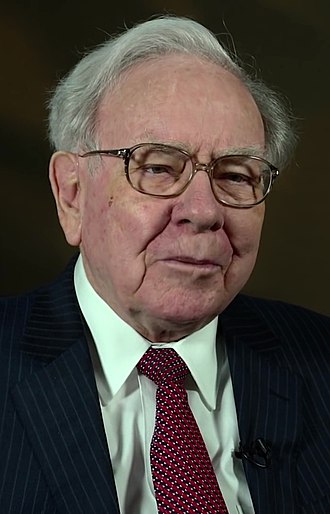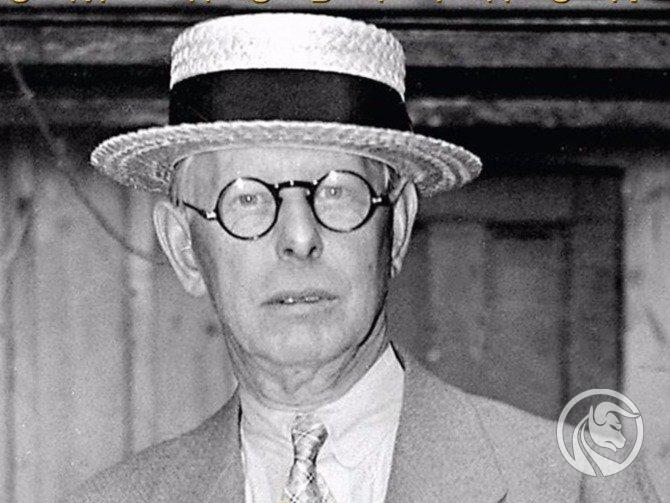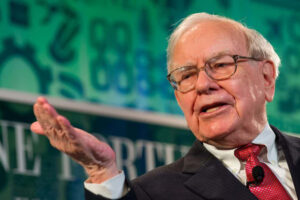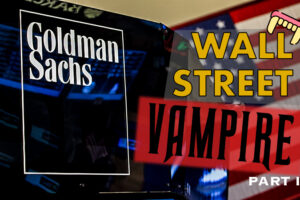Stock quotes every trader needs to know. But do they make sense?
Starting your adventure with the stock exchange, many have certainly heard of it “market truths”. Despite the fact that many have been described by millionaires and billionaires, one should always approach the sentence with caution. After all, it is difficult to summarize investing in one or a few sentences. It is also worth remembering that each investor has a different worldview and trading style. So value investing quotes don't have to make much sense to a stock trader. Similarly, on the other hand, quotations taken from speculators may not always be practical for fundamental investors. It is also worth taking into account that quotes are not a substitute for an investment strategy. They can be treated as an investment signpost.
The most famous market sentences
Here are some of the most popular stock quotes broken down into several different categories.
Sell in may and go away
This is one of the most well-known market phrases. It is abused very often. It refers to the fact that in ancient times there was a belief that the market between May and October behaves much worse than in the rest of the year. Looking at recent years, May was usually a good time to buy stocks. In the case of the S&P 500 index, between 2012 and 2023, there was only one year in which May ended in a decline. This was in 2015 (-0,3%).
Looking at the results achieved by S&P 500 index in May, it is not worth taking market sentences literally. It is worth following the indications of your own system, instead of looking for an advantage in "better" or "worse" months or days.
Trend is your friend
The trend is your friend. This is one of the first “sayings”that the investor learns. However, is the sentence really correct for every investor? Well, it all depends on your investment strategy.
If someone invests based on following the trend, then this sentence should be strictly observed. There is nothing worse than a short-term deal that becomes a long-term investment. This applies to all those traders who joined the trend that changed shortly thereafter. Instead of closing the position (trend is your friend), then such an investor will hold it because his ego does not allow him to admit his mistake. The greater the loss from such a failed trade, the more difficult it is to close the position. As a result, the investor not only loses money, but also misses other market opportunities, because his capital is frozen in unsuccessful investments.
It looks completely different in the case of a long-term investor who invests funds based on the foundations of the company. Then it may happen that the market evaluates the company under the influence of emotions, and not the intrinsic value of the company. This is especially evident during a bear market or crash. Then even great companies can be valued well below their intrinsic value. In such a situation, the value investor will be taking a position against the current trend. The reason for this decision is the belief that the market is wrong about the company's prospects in the next few years.
It is also worth noting that the trends are different depending on the time frame. Sometimes a weekly decline is a correction of a higher order trend that is up. In such a situation, the most important thing is the trend in which the investor trades. If he is trading short term, he should focus on the trend he is trading in and look at the higher order trend (to check the market situation). For such an investor, the 10-year trend on a given asset has no meaning.
diversification
Don't look for a needle in a haystack. Just buy a whole haystack!
This is one of my favorite quotes investing in ETFswhose author is John Bogle. This is because the chance to find another Microsoft or Amazona is very small. Instead of wasting your time trying to beat the market, buy an index fund or ETF. Thanks to this, the investor will acquire both the best companies with huge potential for growth, as well as the average and weak ones. Thanks to this, the investor will earn more or less as much as the broad market.
But the disadvantage of such a solution is that the investor will not achieve spectacular increases in the long term. So it's not a way to get rich quickly. It is rather advice for people who do not have the time and skills to analyze the market. It is also aimed at people who have a very long investment horizon. Stock indices can have up to a decade of weaker returns. Therefore, it is a solution for people with low expectations regarding the real rate of return (several percent per year) and having the ability to consistently implement the strategy (regardless of short-term rates of return).
Another disadvantage of doing this is that you will lose money during a bear market. If the index goes down, the ETF will lose as much. It is not possible to achieve a higher rate of return thanks to an active approach. Passive investing with ETFs also has its pros and cons.
Extensive diversification is only required when the investor does not know what he is doing

Warren Buffett
The famous sentence that fell from the lips of Warren Buffett. This is one of the favorite quotes for people who only want a few items in their portfolio. alone “Oracle of Omaha” says that diversification is for people who don't know what they're doing. However, the sad truth is that most investors are not smarter than the market. As a result, most often their investment ideas are not so safe and profitable that they do not need diversification. This is because most stock market investors do not have the time to approach investments in such a professional manner as Warren Buffett. For this reason, diversification is a “weapon” against making a big mistake. Diversification can be a great way to reduce risk. One mistake will not cause the wallet to lose its value drastically. However, it is important that diversification applies to both sectors and geographical areas. This will avoid apparent diversification (e.g. having a portfolio of only 30 banks).
Diversification causes the investor to "dilute" his profits. After all, it is not possible that the next 30 company in the portfolio is better than the previous 29 and will increase the profitability of the portfolio. If the new investment is better than all the items in your portfolio, and you are sure of it, then you should sell the least promising investment in your portfolio and exchange it for a new, better promising position. The more companies you have in your portfolio, the less chance you have of beating the broad market.
If you diversify, control risk and play with the trend, it just has to work
Lary Hite, the author of the above quote, is a very interesting person of the investment world, and also one of the heroes of the book Wizards of the market. Larry's investment strategy is summarized in this sentence. He tried to minimize the risk as much as possible. As a rule, he allocated a maximum of 1% of his capital to one transaction. But his conservative approach to risk didn't mean he didn't take risks. He was an investor who liked to trade with the trend.
From this quote you can draw a conclusion about this the importance of capital preservation. The wrong approach to this element can bury even the best investor or speculator. As you can see, this is a completely different approach than u “Oracle of Omaha”. After all, Buffett believed that diversification comes from “not understanding what is going on”. Lary Hite, on the other hand, believes that diversification allows you to protect yourself from too much losses if the investor makes a mistake about price changes in the future.
Howard Marks (one of the most prominent investors) agrees with Hite's opinion. According to Marx, investing is for most the so-called losers game (looser's game). This means that they must limit the risk of making mistakes. This requires diversification and a reasonable approach to investment (looking for the difference between the market valuation and the company's intrinsic value).
Risk
Investing that is convenient is rarely profitable
This sentence belongs to Robert Arnott. Investing only in safe instruments does not guarantee high profits. It is enough to answer the question: how many people do you know who have become millionaires thanks to profits from investments. A higher rate of return always requires the acceptance of higher risk.
Taking risks applies to investing in bonds, stocks or other financial instruments. Even the best companies can experience periodic drops in their valuations by up to several dozen percent. Investing in stocks is difficult, not intellectually but psychologically. It is very hard to invest in stocks during a bear market. And that's when the best opportunities to buy stocks are.
From this quote you can also conclude that there is no market “free lunches”. Investing is always associated with uncertainty and acceptance of a scenario in which at least part of the invested capital is lost.
How many millionaires do you know who got rich by investing in savings accounts? I have nothing more to add
This is another quote that refers to the fact that you must accept the increase in risk in order to achieve high returns. The author is Robert G. Allen.
Any investment with minimal risk and guaranteed returns does not provide a high rate of return in the long term. This is the case with savings accounts and term deposits. Therefore, this is another tip that says that you should not be afraid to take risks. There are only two ways to acquire a large fortune: inherit it, or take a chance when a good profit arises.
Of course, you should always have a safety cushion that allows you to keep your household budget liquid. However, it is a waste to keep all your assets in low-interest savings accounts.
One of the biggest risks is not taking any
This is a Mellody Hobson quote that can be related to the previous one. If the investor is unwilling to take risks, he cannot expect a significant increase in wealth. Investing only in treasury bills or deposits will not ensure a high profit. You have to take risks sometimes. The condition is that you should take risks only when there is a chance to generate above-average profits.
Paradoxically, when you don't take significant risks, your chances of building a large fortune over your working and investing life decrease. As a result, you will not have the means to live a decent life in your old age. This will cause you to take a lot of risk at the end of your life and you will not be able to deal with the situation in a reasonable way.
Investing should be like watching paint dry or grass grow. If that excites you, take $800 and go to Las Vegas.
Paul Samuelson is not an investor, but a famous economist whose books are taught to students at many universities. The aforementioned quote, of which he is the author, can be treated as an approach “anti-mainstream”. Most of the media tries to convince us that every day on the market is important and groundbreaking.
However, the truth is that investing should not be exciting. Most sessions in the market are typical “noise”. Nothing groundbreaking happens then. A great example is the situation in recent weeks, when many media talked about the debt limit in the United States. As it turned out later, these were typical "scares". Always approach investing calmly.
Must not be treated investing as gambling. Investing should be approached with an investment plan. This requires patience and diligence. If you approach investing in a professional manner, investing will no longer be exciting. You will simply start to approach new trades from the point of view of risk and potential profits. Every crash and euphoria will then happen “another day at the office”. However, to make investing "boring"risk should be handled appropriately.
It doesn't matter if you're right or not. The most important thing is to know how much money you can make when you are right and how much you can lose when you are wrong.

George Soros
This is a very interesting quote belonging to George Soros. Many investors focus too much on being right. The quote is universal. It can apply to both long-term and short-term investors.
One of the biggest mistakes an investor makes is being too attached to being right. Ego can be very destructive to your returns. For novice investors, it is much more important to be right than to make a lot of money. For this reason, they cut profits (quickly close profitable positions) and hold losing positions (allow losses to build up). This causes the investor to mismanage his capital. The investor should approach investing in the opposite way. Cut your losses quickly if you're wrong, and earn significant amounts of money if you're right.
Transactions should not be judged solely from the point of view of profitability. It is much more important to assess whether the transaction was made according to the system (good trade) or under the influence of emotions (bad trade). The trader should always judge trades by how they open and close positions, not by how profitable they are. This will allow you to free yourself from the need to be right in the market.
It can also be inferred from the quote that proper capital management is very important. The key is not to risk a large part of your capital on one position and to trade in places with a good risk to potential profit ratio.
Tops and holes
Be greedy when others are fearful, be fearful when others are greedy
This is a quote from Buffett that is very often misunderstood. You should not always approach the market with an attitude opposite to the crowd. After all, in the long term, indices such as the S&P 500 and Nasdaq are rising. This is because the economy is growing and companies are generating more revenue and profits.
However, it is important that buy at the right time. The best time to shop is during slumps. This is when you can buy great companies at a very affordable price. That was in March 2009 or 2020. Then extremely pessimistic moods allowed for the purchase of excellent quality companies at very affordable prices.
However, in periods of market euphoria, it is worth considering whether prices do not deviate too much from their fundamentals. This will help you avoid buying overvalued stocks. Even the best quality company can lose its value by several dozen percent if the market previously priced it too optimistic. Acquiring shares during the peak of market euphoria is not a good idea. This is because then investors are ready to pay any price for the shares. Such euphoria is followed by a deep correction, which makes valuations more realistic.
This was the case in the 70s when the Nifty Fifty bubble burst. Another example is the turn of the XNUMXth and XNUMXst centuries, when there was a peak dotcom bubbles or a bubble on growth companies in 2021-2023.
The 4 most expensive words an investor can say are: this time it will be different
This sentence came out of my mouth Sir John Templeton. Each time there will be a group of investors who believe that each subsequent bull market on the market is different from the others. Each time, crazy increases are supposed to have a fundamental basis. During the dotcom bubble, the defenders of “ambitious” valuations explained that the Internet would allow such companies to earn a fortune very quickly. As a result, they agreed to pay higher prices. They explained this by saying that the rapid growth in revenues makes current valuations irrelevant. For this reason, paying 20 or 40 times the revenue generated seemed "reasonable." However, when capital stopped flowing into the market, a problem arose. The drop in demand led investors to realize that nothing can grow indefinitely. Both good and bad tech companies lost.
Similarly, during a bear market, pessimism led investors to believe that very low valuations were completely justified. This was explained by the fact that the current macroeconomic environment justifies low valuations of enterprises. However, a moment's reflection was enough to realize that every crisis is followed by a return to prosperity in developed economies. Those who looked at the valuations with a distance and cut themselves off from the headlines in the newspapers, which threatened with a huge crisis, could buy great-quality companies at very reasonable prices.
The investor should always be aware of the existence of cycles in the stock market and in the economy. Perhaps thanks to this, it is better to prepare for the time of the bear market as well as market euphoria. Of course, history doesn't repeat itself, but it rhymes. What is certain are periods of market panic and euphoria that create opportunities for the cyclical conscious investor.
Shop when there's blood
This is one of the most famous stock market quotes, belonging to Baron Rothschild, who made a huge fortune during the market panics. One of the most profitable deals took place during the Battle of Waterloo. Thanks to faster access to information, he knew about the outcome of the battle faster than others. He used the time of panic among investors to buy overvalued assets well below their intrinsic value.
The Baron was a contrarian. He always believed that during market panics there is a time to buy overvalued assets. So it's a Warren Buffett-like approach. Some views of the market are very similar. Regardless of whether you live in the XNUMXth or XNUMXst century.
Is it always worth buying when blood is spilling? Not always. Investors in Greek stocks during the debt crisis found out about this. In the long term, the Athens stock market failed to provide high returns for Greek stockholders.
Therefore, this is just a hint that periods of market panic may or may not be a good buying opportunity. You should not buy every heavily discounted company. Credit Suisse shareholders have learned that periods of big declines do not always mean an investment opportunity. What matters is solid fundamentals and the acquisition of assets below their intrinsic value.
Many traders make the mistake of buying highs and selling lows when the exact opposite strategy is correct to win in the long term.
The author of the quote is John Paulson. Many inexperienced investors have a problem with the proper filtering of information they obtain from social media, television or the Internet. Instead of focusing on developing an investment strategy, they look for investment ideas from others.
Beginner investors often follow the crowd or “guru” when making investment decisions.
If an investor takes the headlines too seriously, he is not likely to invest in the market during pessimism. And that's when stocks are priced below their intrinsic value. He is prevented from buying by “bad news from the economy” or fear of “the biggest crisis in history”. In turn, during the manic period, the investor is bombarded with information about "great prospects" for both the economy and the companies themselves. This may induce the inexperienced investor to buy stocks well above their fundamental value. This lowers their medium-term investment returns.
Market and wealth building
Markets are never wrong, but opinions are often
Jesse Livermore is one of the most famous investors in the history of capital markets. In this sentence, Livermore believes that the market is efficient and discounts all available information.

Jessie Livermore
At the same time, investors' opinions about the markets are often wrong. This is due to the fact that the investor always looks at the market from the perspective of his position and his own beliefs on the market.
This quote can be understood as the need to adapt to the market, not to argue with it. This is especially important for short-term investors. It is then that market emotions decide, and you can't argue with them.
Fundamental investors may think differently. Instead of thinking that the market is always right, such investors try to take advantage of the market sentiment “buying low and selling high”. However, the investment horizon for long-term investors is different than for speculators. For this reason, they can “hold” the investment for several quarters or even years.
For short-term speculators this approach to investing is at odds with their capital management. For this reason, they always have to “listen” to the market. Even when it's irrational. For this reason, this one Livermore's sentence is very important.
The stock market is full of people who know the price of everything but the value of nothing
A sentence by Philip Fisher refers to the fact that few investors approach investing in a professional manner. This can be seen from the fact that most investors lose money in the market Forex CFDs. Such losses result from the fact that most investors do not do proper research before making a trade. This applies to both “fundamental” investors and those who use technical analysis, price action or momentum strategies.
From Fisher's quote, one can conclude that it is aimed at investors based on fundamental analysis. For this type of investor, it is important to determine the intrinsic value of the asset. Only checking its price and making a decision to buy or sell it. It can also be understood as a departure from constant tracking of quotes. After all, the fundamental value of companies like Amazon or Microsoft does not change by 40% in a few months. However, the market, as a result of emotions, can move the share prices of these companies by several dozen percent per year. The investor can use it for himself.
It's not about how much money you can make, but how much money you can keep, how hard they work for you, and how many generations will keep it
This is an interesting sentence by a controversial figure - Robert Kiyosaki. It applies to both investing and building your wealth for many generations. It's not about becoming a millionaire. After all, many of the lottery winners are them. The point is to develop mechanisms that will ensure that the acquired wealth will not be wasted on unsuccessful investments or unnecessary consumption.
Investing in the capital market is not an end in itself. This is a way to multiply your capital. It is important that the acquired capital is not only used for consumption, but also for building wealth for many generations. For children, grandchildren and even great-grandchildren.
Summation
On the Internet you can read a lot of sentences related to investing in the stock market. They often contradict each other. Therefore, it is worth approaching them with skepticism. What is often repeated and worth taking to heart is:
- approach investments professionally,
- control risk,
- do not succumb to the emotions of the crowds.
Each quote should be approached with caution. This is because each of the authors of the quotes had a different approach to the market. Some of them focused on short-term transactions, others preferred a fundamental approach to investing. Thus, quotes often contradict each other. Therefore, it is worth treating them as signposts, not revealed truth.






















![Forex Club – Tax 9 – Settle tax on a foreign broker [Download the Application] Forex Club - Tax 9](https://forexclub.pl/wp-content/uploads/2024/02/Forex-Club-Podatek-9-184x120.jpg?v=1709046278)
![Trading View platform – solutions tailored to the needs of traders [Review] trading view review](https://forexclub.pl/wp-content/uploads/2024/03/trading-view-recenzja-184x120.jpg?v=1709558918)
![How to connect your FP Markets account to the Trading View platform [Guide] fp markets trading view](https://forexclub.pl/wp-content/uploads/2024/02/fp-markets-trading-view-184x120.jpg?v=1708677291)
![How to invest in ChatGPT and AI? Stocks and ETFs [Guide] how to invest in chatgpt and artificial intelligence](https://forexclub.pl/wp-content/uploads/2023/02/jak-inwestowac-w-chatgpt-i-sztuczna-inteligencje-184x120.jpg?v=1676364263)






![Izabela Górecka – “Success on the market depends not only on knowledge, but also on emotional stability” [Interview] Izabela Górecka - interview](https://forexclub.pl/wp-content/uploads/2024/04/Izabela-Gorecka-wywiad-184x120.jpg?v=1713870578)
![WeWork – the anatomy of the collapse of a company valued at $47 billion [WeWork, part II] wework bankruptcy story](https://forexclub.pl/wp-content/uploads/2024/04/wework-bankructwo-historia-184x120.jpg?v=1711729561)
![Adam Neumann – the man who screwed up Softbank [WeWork, part AND] adam neumann wework](https://forexclub.pl/wp-content/uploads/2024/04/adam-neumann-wework-184x120.jpg?v=1711728724)


![The most common mistakes of a beginner trader - Mr Yogi [VIDEO] Scalping - The most common mistakes of a beginner trader - VIDEO](https://forexclub.pl/wp-content/uploads/2024/03/Scalping-Najczestsze-bledy-poczatkujacego-tradera-VIDEO-184x120.jpg?v=1711601376)
![Learning patience: No position is also a position - Mr Yogi [VIDEO] Scalping - Learning patience - No position is also a position - VIDEO](https://forexclub.pl/wp-content/uploads/2024/03/Scalping-Nauka-cierpliwosci-Brak-pozycji-to-tez-pozycja-VIDEO-184x120.jpg?v=1710999249)
![When to exit a position and how to minimize losses - Mr Yogi [VIDEO] Scalping - When to exit a position and how to minimize losses - VIDEO](https://forexclub.pl/wp-content/uploads/2024/03/Scalping-Kiedy-wyjsc-z-pozycji-i-jak-minimalizowac-straty-VIDEO-184x120.jpg?v=1710336731)



















Leave a Response